 Can this old-school 4x4 deal with some heavy-duty abuse? We’re about to find out
Can this old-school 4x4 deal with some heavy-duty abuse? We’re about to find out
Why we’re running it: To find out whether a big, separate-chassis, part-time all-wheel-drive SUV still has a place in the world
Month 2 - Month 1 - Specs
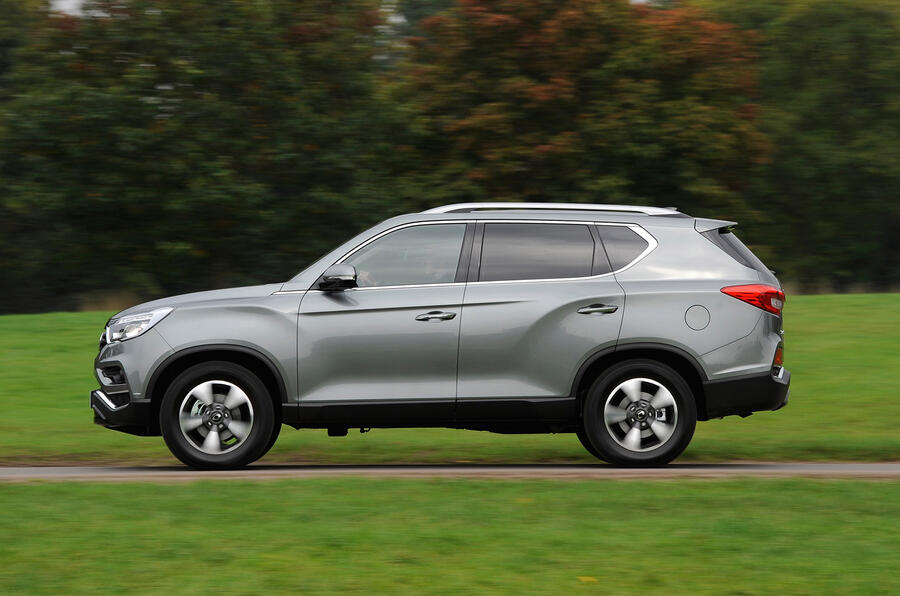
Life with a Ssangyong Rexton: Month 2
Being unique on the roads - 9th May 2018
This is not a characteristic that the makers of the Rexton will likely enjoy, but there’s slightly foolish pleasure to be had from driving a vehicle an example of which you’re unlikely to see coming the other way. That’s partly because this Ssangyong is a new model, of course, but also because it’s a niche vehicle. For now, it’s a pleasingly rare beast.
Mileage: 2159
Life with a Ssangyong Rexton: Month 1
After an off-road experience to forget, is the SUV really as tough as it looks? - 25th April 2018
The mud-covered lanes where I live have rapidly given the Rexton a coat of filth not inappropriate to its rugged constitution. I plan to unleash a jet-washer on it soon, but there’s little point at the moment. And the dirt certainly provides a contrast to the Ssangyong’s pristine ivory cabin.
I quite enjoy the Range Rover-esque perversity of a vehicle that dunks itself in deepish puddles and drives out again, although I wonder how practical an ivory interior really is if you plan to off-road regularly.
Then again, a serious off-roader may not be daft enough to order a colour of this hue. And they’d also install rubber mats rather than the Rexton’s carpet overmats. In fact, it’s not mud that’s leaving traces on the upholstery but blue jeans, their dye already tinting the outer edges of the driver’s seat cushion.
This despite the fact that I try not to crush this bolster when getting in, because it’s massively vulnerable to wear given the Rexton’s height. It can be hard to avoid landing on it as you climb aboard, though. To remove the blue, I’ll be trying leather cleaner on it shortly.
Talking of off-roading, I indulged in a little burst while the Rexton was on its first photoshoot. It was a very short incline onto a road, from a track on a patch of grassy land, admittedly sodden with rain. To my amazement, the Ssangyong was unable to climb it in two-wheel drive, four-wheel drive or even low-range four-wheel drive.
Taking a modest run-up also failed to provide the momentum to crest this modest bank and hit the road. True, the mud had taken on the texture of a Nigella chocolate cake topping, but I thought low-range would be enough.
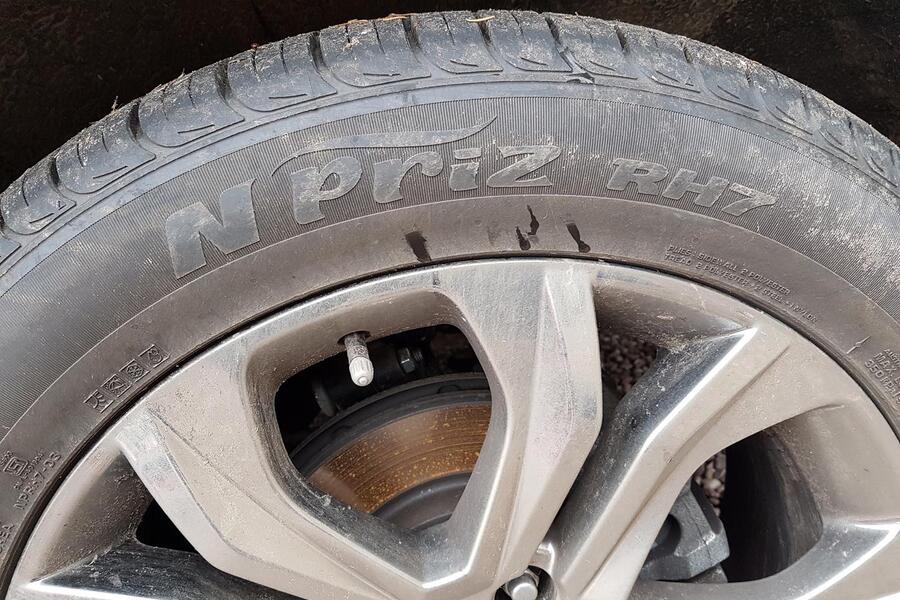
The cause of this muddy immobility was almost certainly the tyres. One thing I’ve learned over years of occasional serious off-roading is that without the right rubber, your electro-mechanical hardware will be struggling.
The tyres on this Rexton are Nexen N Priz RH7, and I assumed that they’d be summer tyres given this muddy nonperformance. But an inspection of the tyrewall revealed an embossed ‘M+S’, which means that they are actually mud and snow tyres – and that they ought to have done a bit of gripping.
Further off-roading is required to discover whether this mud was as slippery as wet floor polish and therefore less representative of the friction coefficient of most basic tracks, but it’ll be hard not to be tentative about departing metalled roads in case an embarrassing moment of stranding ensues.
While on the muddy theme – and this is the last point linked to the earthy gloop – it’s pleasing to see that the Ssangyong’s engine bay stays clean despite the 20in wheels occasionally hitting some big puddles to splashingly spectacular effect.
While there, I checked the Rexton’s oil and found it slightly overfilled, according to the dipstick. Maybe that’s affecting its fuel consumption, extra oil making it harder for the crank to pump pistons. Still, some better news on the economy score, which is that the trip computer appears to be pessimistic.
Up to 2151 miles, the Rexton has been achieving 31.6mpg, which is slightly better than the 29.7mpg registered last time with the computer alone.
You’re not going to win an economy marathon with figures like these, but the Rexton has yet to complete a really long trip, which usually yields better numbers. And it is, of course, an undeniably big and weighty beast.
It is also a likeable beast, further exposure doing nothing to diminish the pleasure of travelling in it. It’s mostly effortless, mostly quiet and mostly smooth, although it’s a little less smooth if you’re riding a B-road, where bumps sometimes discombobulate the relationship between suspension, chassis and body.
The steering is decently accurate and largely untroubled by these forces, reinforcing a relaxed demeanour that’s pleasing to live with despite such flaws.
Love it:
INTERIOR COMFORT We’re enjoying the cabin furnishings and the pretty comfortable driver’s seat.
Loathe it:
REAR-VIEW CAMERA The Rexton’s soon becomes sufficiently muck-covered to be of limited use.
Mileage: 2208
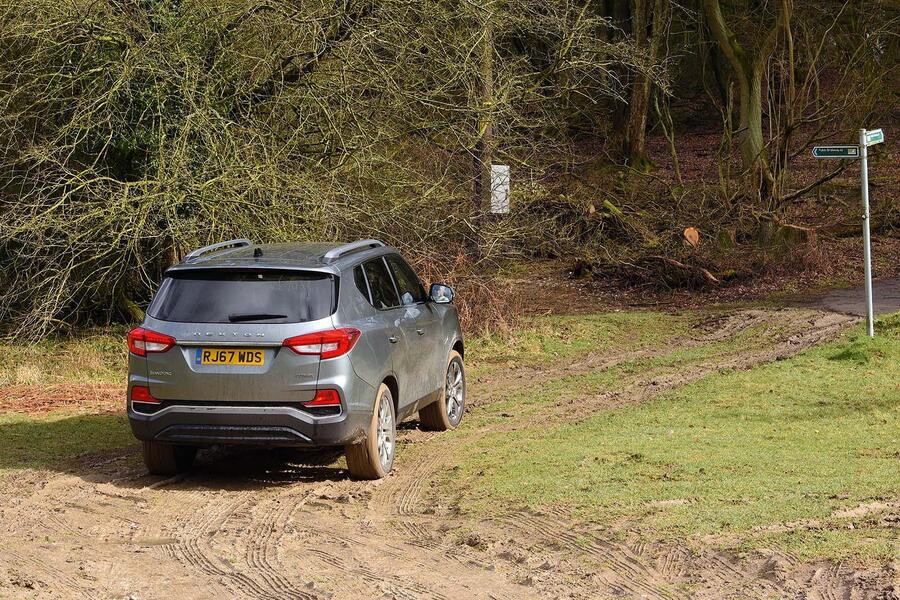
Rexton is proving an accommodating SUV in more ways than one - 11th April 2018
The Rexton’s seat heaters did much to blunt the chill of the recent Beast from the East.
The luxury of this suffusing warmth, and the complementary heated steering wheel, also compensated (slightly) for the discovery that it’s all too easy to see the trip computer’s estimation of your fuel consumption dropping below 30mpg.
I’d hoped that the running-in period – the Rexton arrived with just under 700 miles on the clock – might improve the 29.5mpg originally achieved. The Rexton has now done almost 2000 miles, and there has been a slight gain to 29.7mpg since, but I’m less optimistic now.
Still, these figures are less surprising when you consider the sizeable frontage the Rexton presents to the wind and the fact that it weighs more than 2100kg. And you can keep an eye on the trip computer, and the econometer, from a seat of some comfort, despite its surprising lack of a lumbar adjuster.
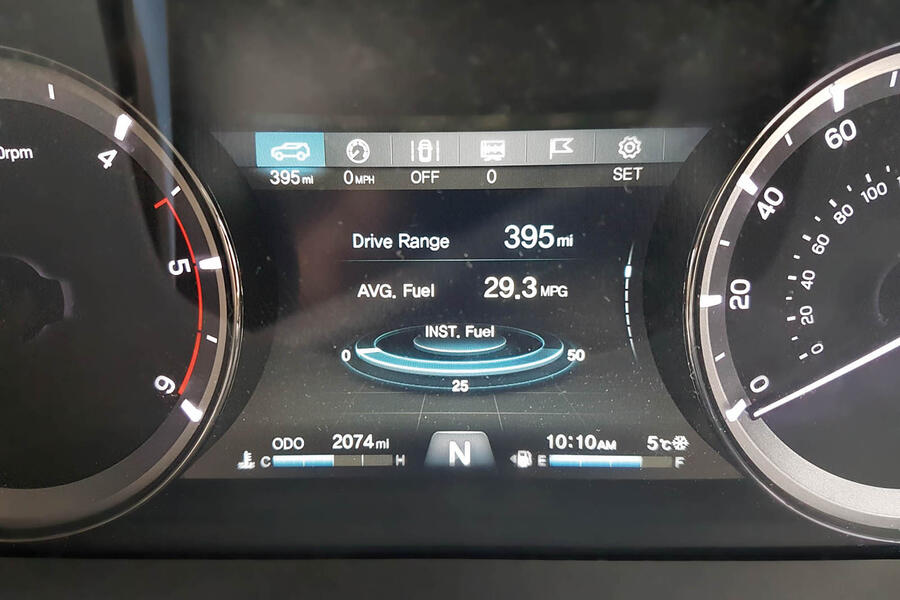
The Rexton is not an especially rapid machine (62mph arrives in a relatively leisurely 11.9sec) but that suits its demeanour, even if the aura of comfort can be rudely interrupted by the effects of a broken road surface. The suspension and separate chassis are sometimes jarring in their struggle to cope, and if the pothole is big and you’re aware of it, you’ll be circumnavigating the depression in question.
The Rexton hasn’t done any towing yet, but it has already been used to cart two lawnmowers simultaneously – with the car’s rear seats still in place – and it also helped with the clear-out of a flat. Our Ultimate version comes with a two-section false floor that eliminates the step between the underfloor and the folded backrests, but you can significantly expand the space by removing the sections, and tipping the entire folded rear seat forwards again.
This also has the advantage of providing a low bulkhead behind the front seats – highly desirable, noted the lawnmower repairman, when you are carrying large, bladed tools that might move during an emergency stop, or worse.
Besides mowers and mattresses, the Rexton has also carried friends, all of them impressed with both the finish of its interior and its space. None has yet commented on the sometimes jumpy ride, but perhaps they’re being polite. Their observations are usually easy to hear, because the Rexton’s drivetrain is pretty quiet. Its seven gears allow the diesel to spend most of its time spinning beneath 3000rpm, and to achieve a restfully subdued cruise on the motorway. Deploying kickdown briefly changes all that, the engine roaring with effort, but these moments are brief, unless you’re in a real hurry.
The hurried will also discover that the Rexton can be annoyingly slow off the mark when you’re pulling out of a junction, prompting a deeper sinking of the throttle that can then provoke a gravelly scrabble from the inside rear wheel. So it’s not always restful, and certainly not speedy.
You won’t be pushing it to the limit on back roads, either, although some experimentation on a gravel road induced an amusing little drift, curtailed by the stability control system. The Rexton runs in rear-wheel drive, incidentally, unless you select all-wheel drive or low range. So there’s scope for more serious offroad work.
For the moment, though, the Ssangyong is scoring points for its usefulness, cabin ambience and cruise-along character.
Love it:
ELEVATED VANTAGE POINT The cabin layout is almost entirely an ergonomic delight. Only the ease with which the hazard lights button can be knocked on detracts.
Loathe it:
FLAT-LINING ECONOMY Fuel consumption of 29.7mpg doesn’t look like it will improve much now the Rexton is run-in.
Mileage: 3133
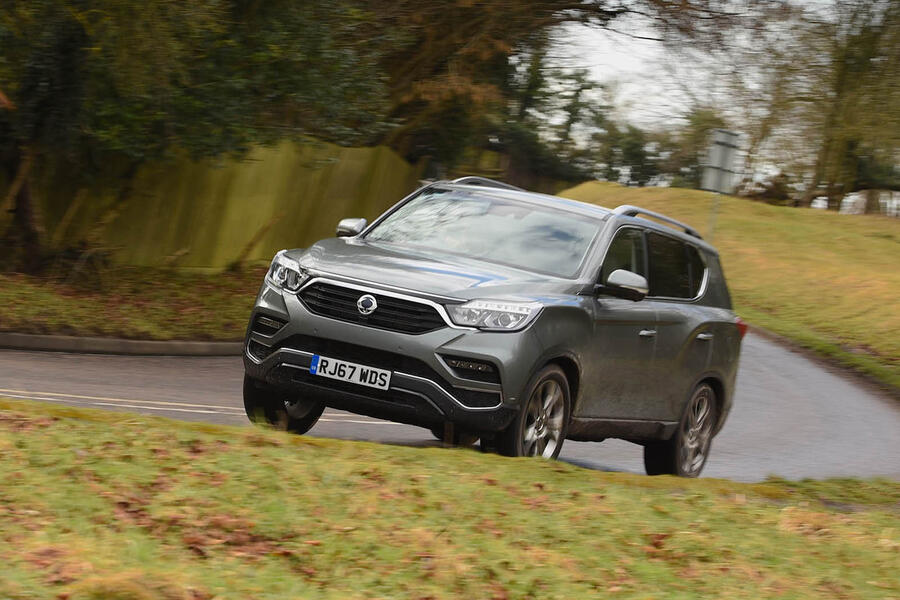
Welcoming the Rexton to our fleet – 28th March 2018
Whatever you think of Ssangyong, there’s no denying that the company’s new Rexton four-wheel drive is a vehicle of intriguing contrasts.
It has a finely appointed interior crammed with modern electrical tech, yet there’s an old-school rotary knob allowing you to switch between rear-wheel drive, four-wheel drive and low range. It has a rather 20th-century separate chassis, above which sits a modishly sumptuous quilted leather interior.
So this is your big, tough SUV in the form that most of these beasts used to come in, underpinned with box-section steel reinforcements that would have been familiar to Isambard Kingdom Brunel.
South Korean Ssangyong is now well into a recovery drive under the apparently benevolent wing of Mahindra & Mahindra, racing to catch up with competitors after bankruptcy protection and takeover. It’s also aiming to find itself a viable niche in a crowded automotive world. Rather than battle the major SUV makers head-on, the Rexton sits in an increasingly lonely slot occupied by rugged 4x4s with a separate chassis and the ability to tow 3.5 tonnes in sometimes arduous conditions.
Unless you’re happy to drive a crew-cab pick-up truck – indeed, the Rexton shares its foundations with just such a vehicle, in the shape of the new Musso – your only similarly constructed alternatives are the ageing Mitsubishi Shogun, the utility Jeep Wrangler, Toyota’s Land Cruiser or the Mercedes G-Class.
But as Ssangyong points out, there’s a market for a tough SUV that can play the mule, and the firm has ambitions to take a slice of it, aided by the fact that this much-improved Rexton provides equipment and furnishings that are entirely contemporary. So, all versions have autonomous emergency braking, forward collision warning, lane departure warning and traffic sign recognition, as well as Apple CarPlay and Android Auto, a rear-view camera, auto headlights and wipers and at least eight airbags, for a price that starts at £27,995.
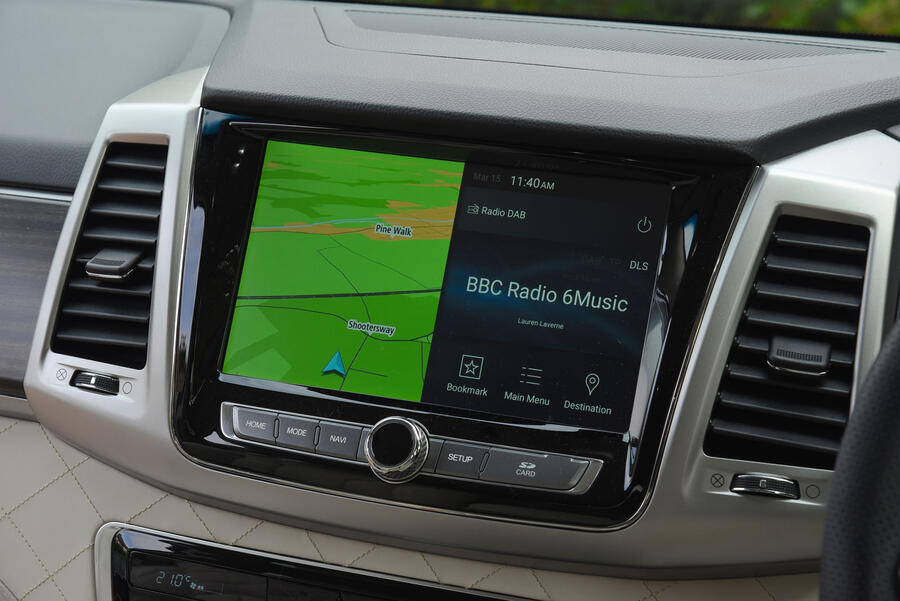
That gets you the EX trim; there’s also an ELX version, but we have greedily gone for the Ultimate, in no small part because it provides one of the Rexton’s biggest visual surprises. Which is a part-quilted, nappa leather interior redolent of a Bentley’s. Of course, close inspection soon shows why a Bentley cabin costs so much more – not because the Rexton’s is poorly finished, but because Bentley goes much further with detail like knurled metal gearlever knobs. Sit aboard the Rexton, though, and you’ll be enjoying a decently premium experience, if not a super-luxury one.
And the Ultimate certainly comes laden with kit. The front seats are ventilated as well as heated, the rear seats and steering wheel are heated, there’s an around-view monitor, a power tailgate, 20in alloys (in gangsta chrome finish), a removable false floor, a sizeable 9.2in infotainment screen, a driver’s knee airbag and, unusually, a 220V power supply – just the job for charging laptops and power tools.
The Rexton’s engine is the same regardless of trim, its 2.2-litre turbodiesel mustering 179bhp and a more promising 310lb ft of tugging power between 1600 and 2600rpm. The Rexton Ultimate comes with automatic transmission as standard, a seven-speed Mercedes E-Tronic gearbox (Ssangyong has a long association with Daimler). The less expensive versions are available with a six-speed manual.
The Ultimate also comes as a five-seater, but seven-seat Rextons are also available. If the seven-seat option implies plenty of space, well, there is – the five-seater providing 820 litres seats-up, or 1977 litres seats down. That can’t be far off the capacity of many a garden shed.
Such usefulness I plan to put to good use, along with the optional tow-hook, by using the Rexton to transport assorted non-running classic cars about and, in the case of a dismantled 1968 Alfa Romeo GTV currently undergoing a body restoration, a load of parts too. With that 3.5-tonne towing capacity, it should be a breeze.
And so far, so is living with the Rexton. When you climb into its cabin, your resultant height reminds you that all these new crossovers and SUVs do not ride as revealingly high. New vistas are opened up on familiar journeys because you can see over hedges, and often a lot further up the road too. You ride at the same regal height as you do in a Range Rover, and it’s very pleasant. That same height rather underlines the Rexton’s more limited on-road dynamic potential, although the steering is quick enough and furnished with unusually good feel, the assistance being hydraulic rather than electric. So it’s a bit more wieldy than separate-chassis SUVs used to be, but unsurprisingly well adrift of the athletic scope of a BMW X5.
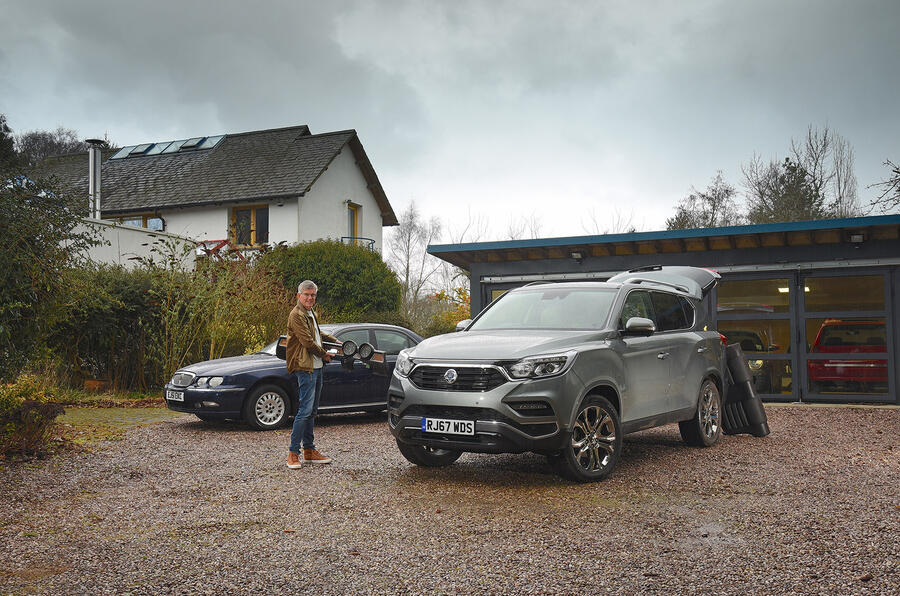
It’s not that kind of car, of course. But it presents well, if you can get past the rather weird sculpture of the front wings – and the fit, finish and robustness of our car are good. No rattles have been detected and, apart from a footling difference in panel gap between one side of the tailgate and the other, it’s a well-finished vehicle (car isn’t quite the word for this beast) both inside and out.
The next six months will tell us whether the Rexton’s now quite rare collection of trade-offs works, whether its liveable with daily and how good a tow it can muster. And we’ll be enjoying the voyage aboard a pleasingly upholstered cabin.
richard bremner
Second Opinion
This looks interesting as a cut-price Discovery. It is equipped for off-roading, has loads of space and comes with plenty of toys. Given the five-year warranty and uncertainty around residuals, buyers might be temped to get a cheaper one-year-old version with four years of guarantee left.
Will Williams
Ssangyong Rexton specification
Specs: Price New £37,995; Price as tested: £40,150; Options: Metallic paint £600, towbar and electrics £805, spare wheel kit £750
Test Data: Engine 4cyl, 2157cc, turbocharged diesel; Power 179bhp at 4000rpm; Torque 310lb ft at 1600-2100rpm; Top speed 115mph; 0-62mph 11.9sec; Claimed fuel economy 34.8mpg;Test fuel economy 29.5mpg; CO2 218g/km; Faults None; Expenses None
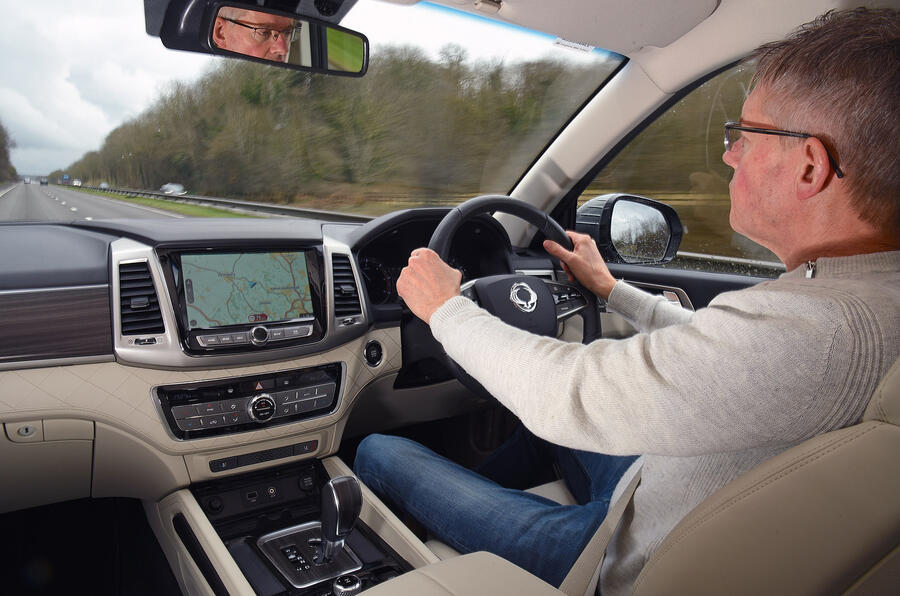
via Autobuzz Today
Comments
Post a Comment